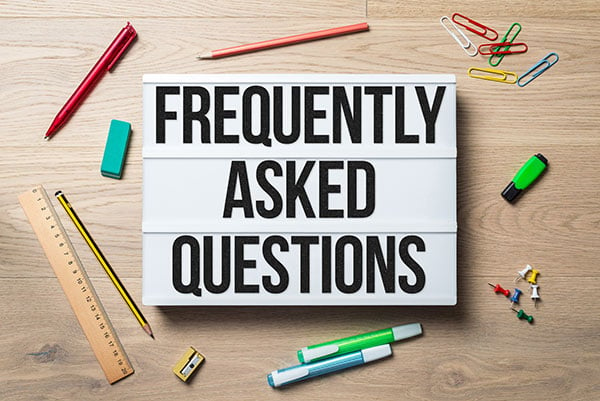When you buy a house, you have a good chance of finding your ideal home inside a community association, such as an HOA or condo. On the other hand, joining a community association can be a confusing time for some homebuyers, especially if they haven’t lived in an HOA before. By purchasing a property within that community, you’ve agreed to uphold the rules and help fund the association’s costs and maintenance of that community. If you have questions about what this means as a homeowner in a homeowner's association, you're not alone.
HOAs often hear a few frequently asked questions by new homeowners and homebuyers about what it means to join an HOA.
Here are the answers to the most commonly requested HOA questions.
"What is a Homeowner's Association?"
A homeowner's association is created by the community’s developer as an entity to uphold the community’s deed restrictions and maintain any neighborhood common area or grounds such as entrances, parks, pools, etc. Not all associations have a common area, but most do. After the development and sale period, anywhere from a few months to multiple years, the Board of Directors is elected from amongst the homeowners to govern the HOA.
Each homeowner also pays a portion of the costs to maintain the shared spaces and manage the community. Typical HOA costs are insurance, management, postage, and cost to conduct business of the association, pool maintenance, playgrounds maintenance, landscape maintenance, community events, etc. These expenses vary community to community widely.
"What Kind of Things Can an HOA Regulate?"
HOAs typically regulate the exterior aesthetic or “look” of your home. The goal is to help the neighborhood maintain its attractiveness. That sometimes means a certain amount of uniformity in the exterior design of the homes in the community. Common regulations for upkeep may include
- Paint color
- Landscaping
- Landscape maintenance
- Trashcan management
- Parked cars
- Snow removal
- Boat / RV storage
Always ask to see the governing documents of an HOA before you buy the house. This way, you know what is regulated and, therefore, if the neighborhood is a good fit for your lifestyle.
"How Do HOA Boards Enforce the Rules?"
Associations usually start with a notification, fees, and an escalation process for non-payment or continued violations. This process is often dictated by the governing documents and state law. HOAs often have very little flexibility in how they address these concerns.
If an owner is unable to quickly resolve a violation, they should reach out to the HOA and see if they can get an extension or try to come to an acceptable compromise, sometimes called a variance. If an owner does not resolve the violation or come to an agreement about how they are going to resolve it, then an HOA can take legal action. Although never a desired action, they may be required to follow the legal process outlined in the documents and/or state law, which can include fines, placing a lien on the property, or even foreclosure of a house in extreme situations.
"What Happens If You Don't Pay or Break the Rules?"
You will first receive communication if you violate the neighborhood rules or don't pay dues. This is usually in the form of a violation notice. Ideally, the violation is resolved quickly, or you are able to make a payment toward the assessments. Associations have to follow the enforcement steps outlined in their governing documents and state law.
"How Much Will an HOA Cost in Fees Each Month?"
HOA fees vary widely based on the costs of the association. Some associations may have fees that are only $100 per year, and others may be several hundred dollars per month or even more. Condos and townhomes are likely to have higher HOA fees due to the costs of maintaining a shared building, higher insurance costs, etc. Larger communities with more amenities and programs will likely have higher maintenance fees.
"Will HOA Fees Affect How Much You Can Borrow?"
It can. When planning to borrow a new home, your lender will often look at the total costs of owning a home when calculating your budget, including the assessments. So carefully considering the amenities offered in the community, those costs currently, and thinking about what they may look like in the future is strongly advised.
Do You Have to Pay HOA Fees Even If You Don't Use the Common Areas?
Yes. As a member of the association, you are also partly responsible for sharing the cost to maintain all the amenities and/or other costs of the association. Your assessments pay for maintenance, repairs, and other costs of the association.
Final Thoughts
Through this blog, we have addressed seven of the most frequently asked questions about HOAs. By providing clear and concise answers, we hope to have helped potential homeowners better understand the role and expectations of an HOA. It is our belief that by fostering a greater understanding and communication between homeowners and HOAs, we can create stronger and more harmonious communities for all.


